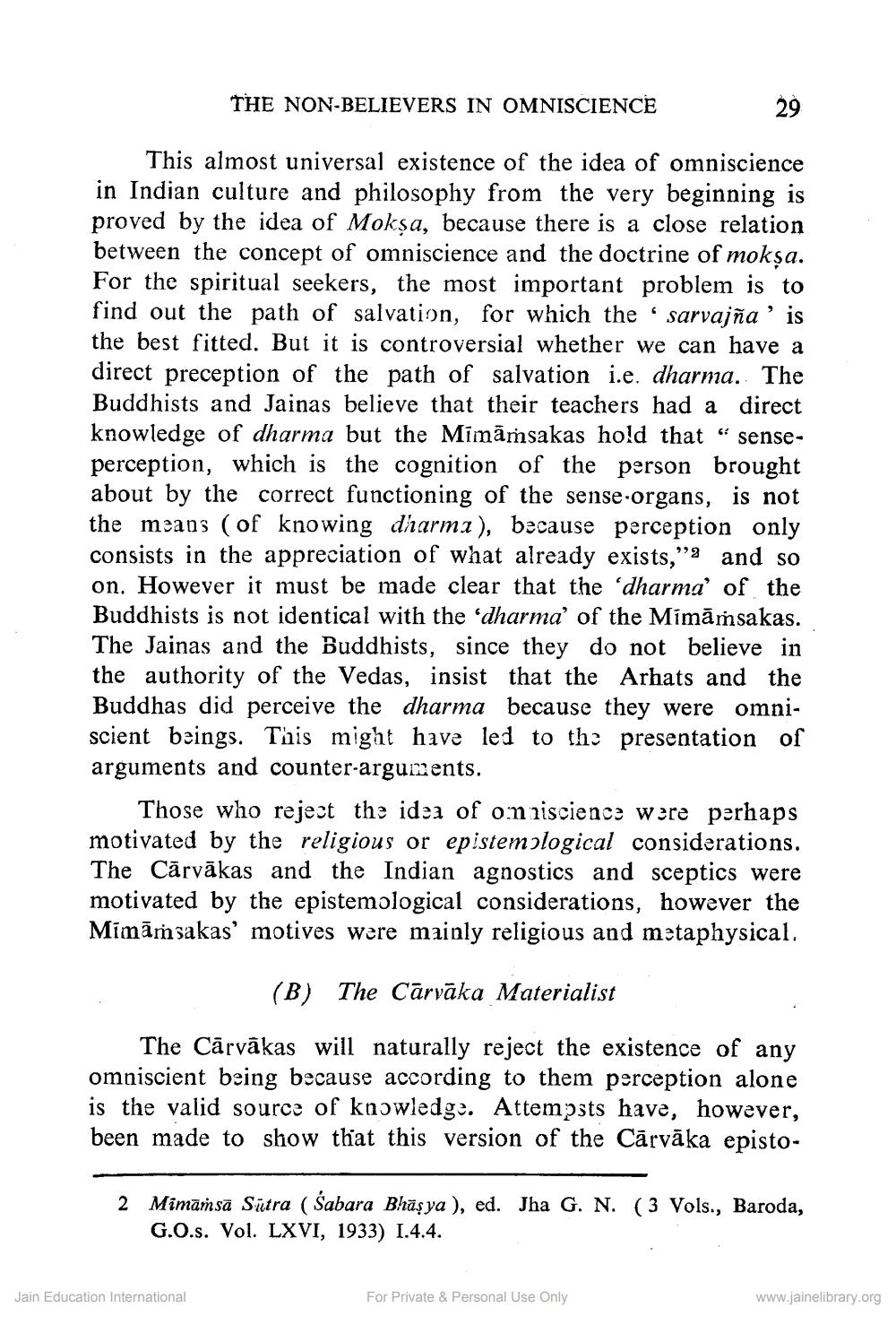________________
THE NON-BELIEVERS IN OMNISCIENCE
29
This almost universal existence of the idea of omniscience in Indian culture and philosophy from the very beginning is proved by the idea of Mokşa, because there is a close relation between the concept of omniscience and the doctrine of moksa. For the spiritual seekers, the most important problem is to find out the path of salvation, for which the . sarvajña' is the best fitted. But it is controversial whether we can have a direct preception of the path of salvation i.e. dharma. The Buddhists and Jainas believe that their teachers had a direct knowledge of dharma but the Mimāṁsakas hold that “senseperception, which is the cognition of the person brought about by the correct functioning of the sense organs, is not the means (of knowing dharma), because perception only consists in the appreciation of what already exists,"9 and so on. However it must be made clear that the 'dharma of the Buddhists is not identical with the 'dharma' of the Mimāṁsakas. The Jainas and the Buddhists, since they do not believe in the authority of the Vedas, insist that the Arhats and the Buddhas did perceive the dharma because they were omniscient beings. This might have led to the presentation of arguments and counter-arguments.
Those who reject the idea of onniscience were perhaps motivated by the religious or epistemological considerations. The Cārvākas and the Indian agnostics and sceptics were motivated by the epistemological considerations, however the Mimāmsakas' motives were mainly religious and metaphysical.
(B) The Cārvāka Materialist
The Cārvākas will naturally reject the existence of any omniscient being because according to them perception alone is the valid source of knowledge. Attempts have, however, been made to show that this version of the Cārvāka episto
2 Mimāṁsā Sūtra ( Šabara Bhāşya ), ed. Jha G. N. (3 vols., Baroda,
G.O.s. Vol. LXVI, 1933) 1.4.4.
Jain Education International
For Private & Personal Use Only
www.jainelibrary.org




